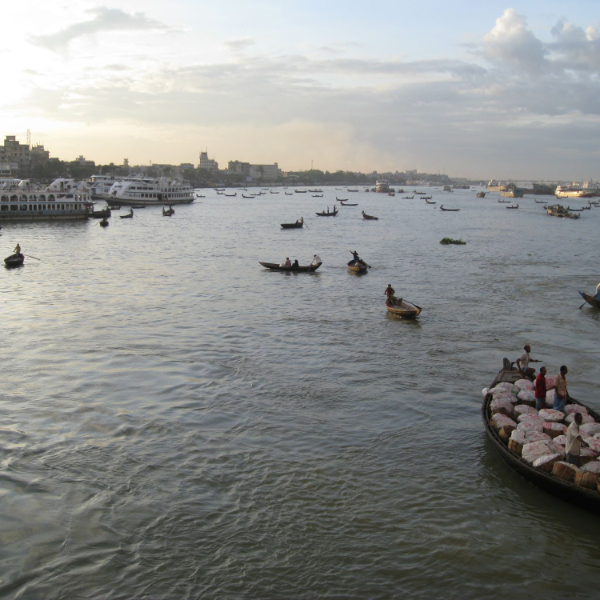Bangladesh Delta Plan 2100

Bangladesh Delta Plan 2100
The supply of sufficient drinking water for the further development of Bangladesh is essential. Due to climate change and population growth, the current supply of drinking water is not sufficient. This slows down the economic growth in the country. In addition, Monsoon floods and cyclones make the country very vulnerable.
Due to floods salt water penetrates the delta region, which affects the quality of drinking water and hinders food production. The resulting pollution of the drinking water causes diseases to break out, while the interior of the country suffers from drought. This complexity of problems requires a sustainable and long-term approach. Important in the approach is to guarantee safety and health in the country, and further economic growth.

Sustainable development of a complex delta region
According to the principles of the Dutch Delta Technology, the government of Bangladesh is supported in the preparation for the long-term plan Bangladesh 2100. A holistic approach is central and all problems with land and water are taken into account.
Witteveen+Bos is conducting field and baseline studies within the plan. In addition, we develop future scenarios and perspectives for water supply, sanitation facilities, river training works and coastal defence infrastructure. The plan offers technical solutions and advice on governance, institutional strengthening and financial management. A common strategy for sustainable flood protection, food security and economic growth will be developed. The project ends with a proposal for an implementation framework for the recommended measures.
These measures contribute to a sustainable way of coping with the problems in Bangladesh and creating a safe and healthy living environment. The country's economy can thus continue to grow, so that the status of middle-income country is reached by 2021. Services provided: analyses and feasibility study, training, preliminary design, cost estimates.
By supporting long-term sustainable development in Bangladesh, the country can grow to a middle-income country in 2021.

More information?
